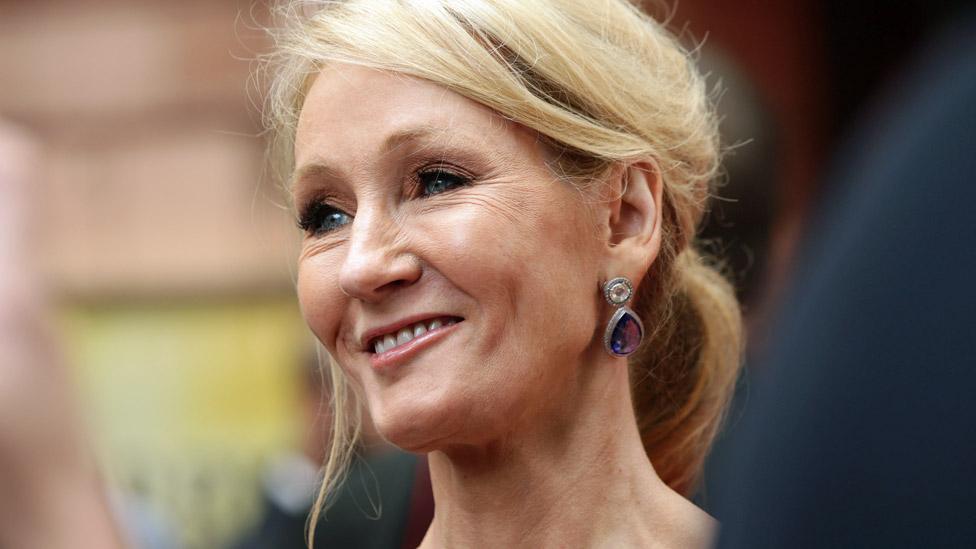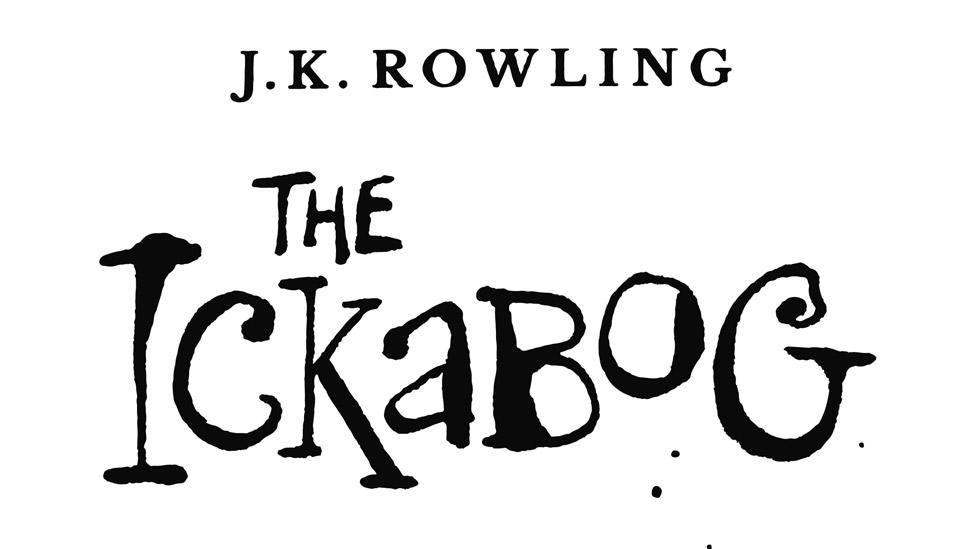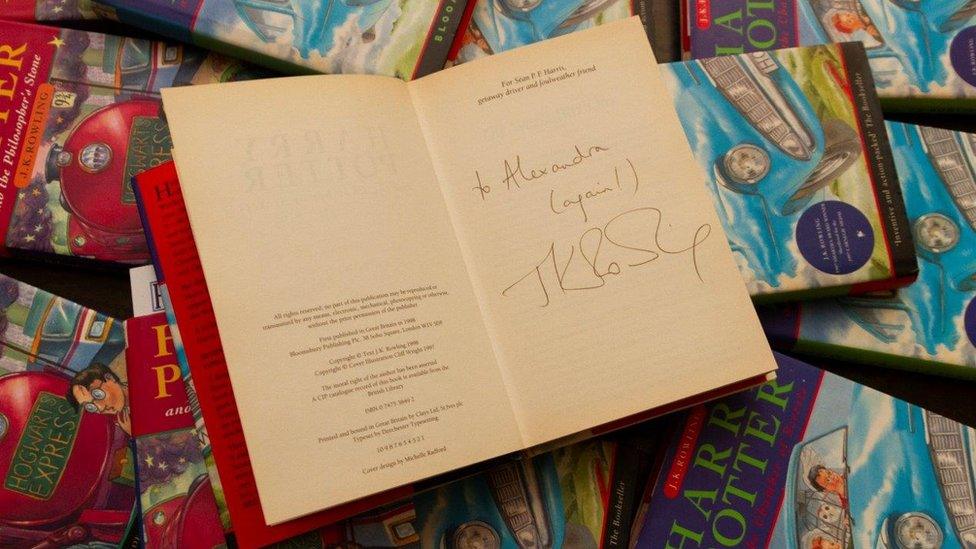JK Rowling unveils The Ickabog, her first non-Harry Potter children's book
- Published

JK Rowling has surprised fans with the announcement of a brand new children's book, which she is publishing in daily instalments on her website for free.
The Ickabog is her first children's story not to be linked to Harry Potter. She wrote it over a decade ago for her own children and has now dusted it off.
It's for "children on lockdown, or even those back at school during these strange, unsettling times", she said.
She had previously referred to it only as an unnamed "political fairytale".
Chapters of The Ickabog are being published daily until 10 July on The Ickabog website, external.
The first two chapters, which went online on Tuesday, introduced King Fred the Fearless, ruler of Cornucopia, and five-year-old Bert Beamish.
Readers also learned about the myth of a fearsome monster called The Ickabog, which is "said to eat children and sheep".
The author said she originally intended to release the story after the seventh and final Harry Potter novel came out in 2007.
But she decided to take a break from publishing, and put the manuscript in her attic.

"Over time I came to think of it as a story that belonged to my two younger children, because I'd read it to them in the evenings when they were little, which has always been a happy family memory," she wrote on her website, external.
A few weeks ago, she suggested to her children that she might retrieve it from her loft.
"My now teenagers were touchingly enthusiastic, so downstairs came the very dusty box, and for the last few weeks I've been immersed in a fictional world I thought I'd never enter again.
"As I worked to finish the book, I started reading chapters nightly to the family again.
"This was one of the most extraordinary experiences of my writing life, as The Ickabog's first two readers told me what they remember from when they were tiny, and demanded the reinstatement of bits they'd particularly liked (I obeyed)."
Allow X content?
This article contains content provided by X. We ask for your permission before anything is loaded, as they may be using cookies and other technologies. You may want to read X’s cookie policy, external and privacy policy, external before accepting. To view this content choose ‘accept and continue’.

It was written to be read aloud, but is suitable to be read alone by children between seven and nine, she said.
It will be published as an actual book in English in November, with all author royalties going "to help groups who've been particularly impacted by the pandemic".
Illustration competition
She has also asked young readers to draw their own illustrations, with the best pictures to be included in the published books.
"I want to see imaginations run wild!" she wrote. "Creativity, inventiveness and effort are the most important things: we aren't necessarily looking for the most technical skill!"
The story is about truth and the abuse of power, Rowling explained.
"To forestall one obvious question: the idea came to me well over a decade ago, so it isn't intended to be read as a response to anything that's happening in the world right now.
"The themes are timeless and could apply to any era or any country."
Fairytale life?
It was in a 2007 interview with Time Magazine, external that she first said she was writing a "political fairytale". She later revealed, external she had written the text on her fancy dress outfit for her 50th birthday in 2015 - when she went as a lost manuscript.
Tuesday's announcement, external is confirmation she was referring to The Ickabog.
A theme of inequality is clear from the story's first chapter.
Most of Cornucopia was a "magically rich land" with happy people and fine, abundant food, readers are told.
But in the northern tip lived the Marshlanders, who scraped by on meagre resources. They had "rough voices, which the other Cornucopians imitated", and were the butt of jokes about "their manners and their simplicity".

Follow us on Facebook, external, or on Twitter @BBCNewsEnts, external. If you have a story suggestion email entertainment.news@bbc.co.uk, external.
- Published5 May 2020

- Published2 May 2020

- Published12 December 2019
